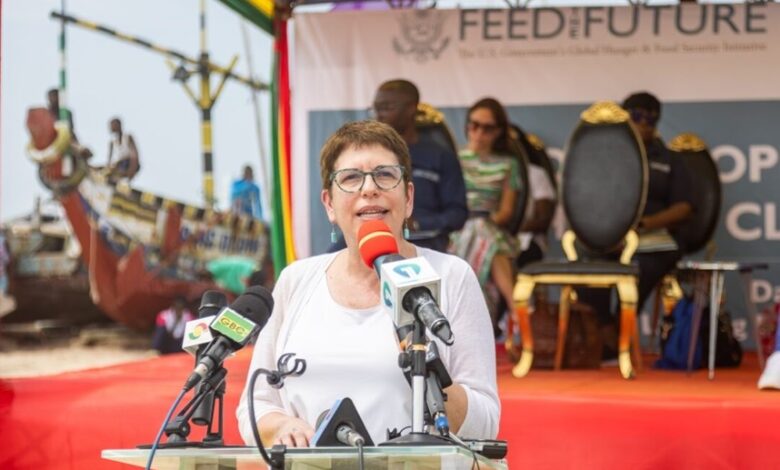USAID invests $24m in Ghana’s coastal fisheries recovery

The United States (U.S.) Government, through the United States Agency for International Development (USAID) has partnered the Ministry of Fisheries and Aquaculture Development and the Fisheries Commission to observe the end of the 2024 closed fishing season.
The closed season allows fish populations to recover by protecting young and pregnant fish from fishing pressure for a month, allowing them to rest and spawn. This period also provides fishers the opportunity to mend their equipment and prepare for their expeditions.
“USAID supports sustainable fishing practices like the closed season because we recognize the importance of replenishing Ghana’s fish stocks. Fish is an essential source of food, nutrients and livelihoods for millions of Ghanaians.” Said USAID/Ghana Acting Mission Director, Grace Lang, during the event.
“The biological impact assessment of the 2023 closed fishing season shows an increase in the average sizes of round sardinella, flat sardinella and anchovies compared to before the closed season commenced. This suggests that during the closed period, populations had a chance to recover from the pressures of fishing activity, leading to a rebound in their size.” Lang added.
The United States is Ghana’s largest development partner. In 2023, bilateral support from USAID totaled over $140 million dedicated to supporting agriculture and economic growth, health, education, governance, and more.
The USAID-supported Feed the Future Ghana Fisheries Recovery Activity is providing $24 million (over 355 million Ghana Cedis) in multi-year investments to restore Ghana’s coastal fisheries and improve ocean conservation along the coast. Some interventions include the closed fishing season, the moratorium on new canoe entrants, electronic monitoring systems in the trawl sector, and the implementation of ministerial directives on trawl gear. USAID has also supported the establishment of regional co-management committees and local landing beach enforcement committees to ensure the participation of fishers in management decisions that affect their lives and livelihoods.




